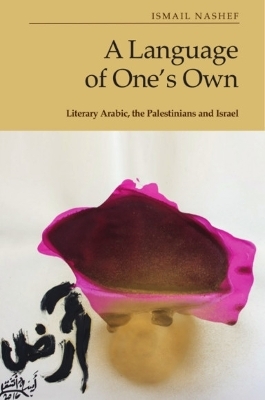
A Language of One's Own
Edinburgh University Press (Verlag)
978-1-3995-1201-5 (ISBN)
Demystifies the roles of literature and literary practices in the Palestinian national movement since 1948
Offers a fresh case study of literary colonial contexts, in which language, literature, and socio-political regime are re-examined based on new data
Opens a new tradition of addressing literary criticism as part of the Palestinian literary field by incorporating economic, social, and institutional factors in the analyses of literary Arabic
Provides new and genuine insights regarding the literary settler colonial context in Palestine, and demystifies many of the accepted notions regarding the roles of literature and literary practices in the Palestinian national movement.
Unlocks the umbilical relation between the language and the nation in the Palestinian and Israeli contexts, and it frees literature and literary practices from the preordained roles derivative from the national ideologies of both Palestinians and Israelis.
Argues that reading and writing practices are a form of social and political agency in themselves
Demystifies many of the accepted notions regarding the roles of literature and literary practices in the Palestinian national movement
Following the establishment of Israel in 1948, literary Arabic became one of the main representative of Palestinian national identity within Israel, and therefore a contested public site. Various state agencies and Palestinian groups were active in this public site, calling for certain ways of reading and writing in Arabic. These ways influenced the processes of reshaping the Palestinian national identity that were ignited by the war of 1948. Addressing the Palestinian reading public in Israel, both state agencies and Palestinian groups used literary criticism, as well as other genres, to promote and inculcate their preferred ways of reading and writing.
Ismail Nashef argues that since 1948 there have been three distinct modes for addressing the Palestinian reading public through literary Arabic: the public intellectual mode, the academic mode and the professional expert mode. Based on rich literary, historical and legal data, the book offers a fresh case study of literary settler colonial contexts, in which language, literature and socio-political regime are re-examined based on new data. It demonstrates the impossibility of rebuilding Palestinian national identities within the Zionist regime, highlighting the literary embodiment of the ongoing settler colonial condition of Palestinians in Israel
Ismail Nashef is Associate Professor of Anthropology at the Doha Institute for Graduate Studies, Doha, Qatar. He has held academic positions in different universities in the Arab World and beyond. In addition to his academic career, he is a literary and art critic as well as a curator. He has initiated and participated in different cultural and academic projects in academia and elsewhere. His research focus is on materiality, language and ideology. He explores these topics as they are expressed in literature and visual arts. His current research is on visual arts and literature in the colonial contexts, with special attention to the Arab Islamic societies, generally, and Palestinian society, particulary. His latest publications include: Ruins: Expressing al Nakba (Arab Institute for Research and Publishing, 2019); Arabic: A story of a colonial mask (Arab Center for Research and Policy Studies, 2018); June's Childhood: Dar al Fata al Arabi and the genres of tragedy (Tamer Institute for Community Education, 2016); Images of the Palestinian Death (Arab Centre for Research and Policy Studies , 2015); On Palestinian Abstraction: Zohdy Qadry and the Geometrical Melody of Late Modernism (Raya, 2014).
| Erscheinungsdatum | 04.07.2023 |
|---|---|
| Verlagsort | Edinburgh |
| Sprache | englisch |
| Maße | 156 x 234 mm |
| Themenwelt | Literatur ► Biografien / Erfahrungsberichte |
| Literatur ► Essays / Feuilleton | |
| Geschichte ► Allgemeine Geschichte ► Neuzeit (bis 1918) | |
| Geisteswissenschaften ► Geschichte ► Regional- / Ländergeschichte | |
| Geisteswissenschaften ► Sprach- / Literaturwissenschaft ► Anglistik / Amerikanistik | |
| Geisteswissenschaften ► Sprach- / Literaturwissenschaft ► Literaturwissenschaft | |
| ISBN-10 | 1-3995-1201-3 / 1399512013 |
| ISBN-13 | 978-1-3995-1201-5 / 9781399512015 |
| Zustand | Neuware |
| Haben Sie eine Frage zum Produkt? |
aus dem Bereich


